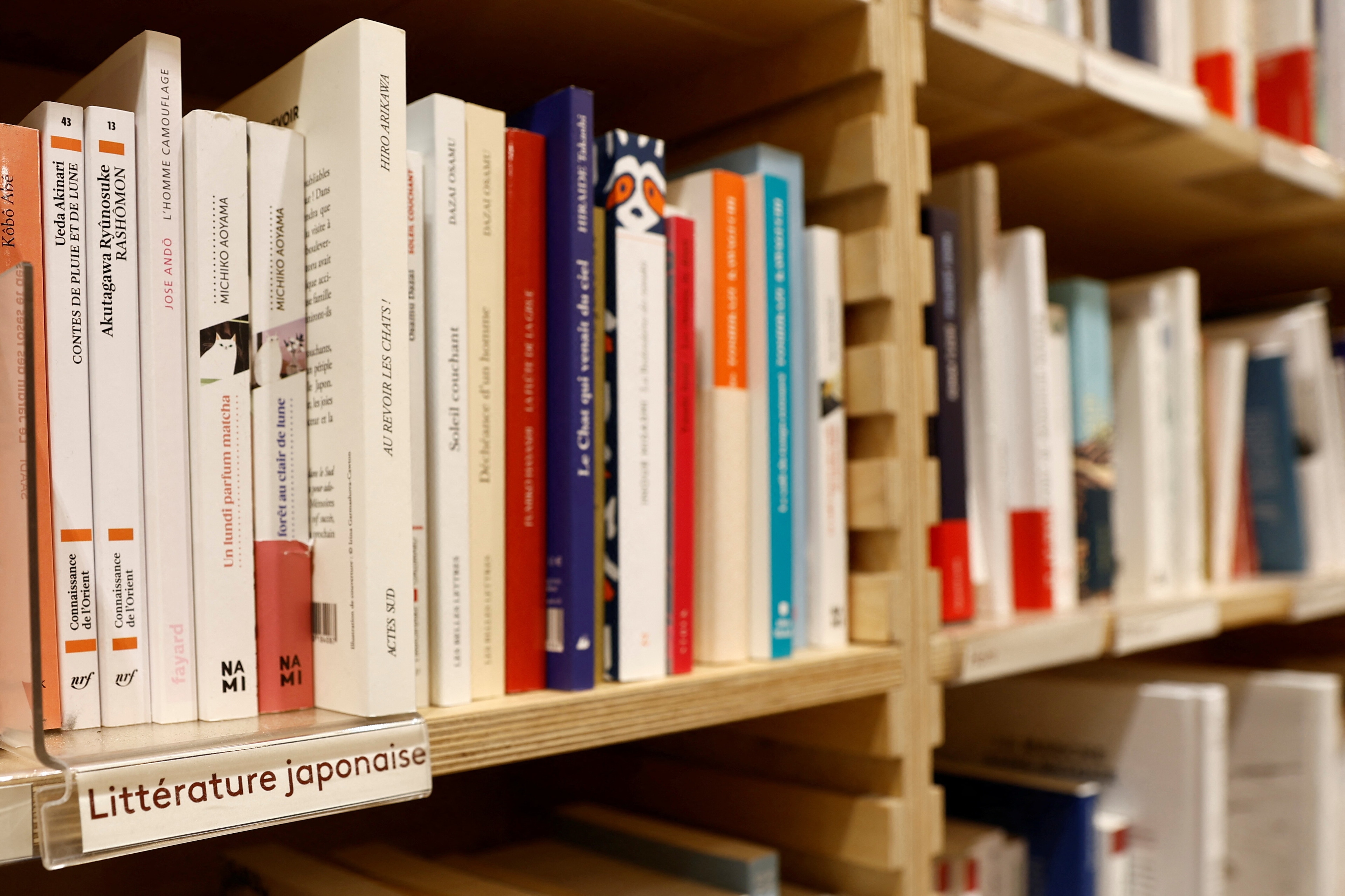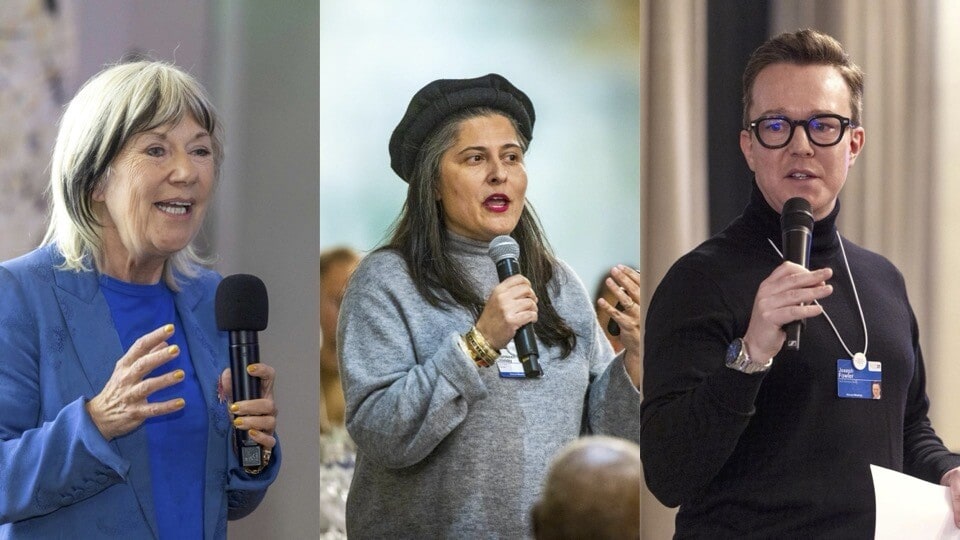Four famous moments when sport and politics collided

Sporting events such as those occurring on the Korean peninsula can have significant political symbolism, but their contribution to actual peacemaking efforts is not always assured. Image: REUTERS/Mike Segar
It was an unexpected addition to the “ice diplomacy” of the PyeongChang Winter Olympics. North Korean cheerleaders, who had supported the unified Korean women’s ice hockey team, then showed up en masse to cheer on the South Korean men’s team in their defeat to the Czech Republic.
Aside from the symbolic unity on display at the opening ceremony of the Winter Olympics, when athletes from the North and South marched out under a unified flag, real diplomacy has happened on the sidelines and in the stands. South Korean president, Moon Jae-in and Kim Yo-jong, sister of North Korean leader Kim Jong-un, met on the sidelines of the games in a meeting that culminated in Moon’s invite to visit Pyongyang. They both then went on to watch the combined Korean team.
Sport and politics often collide, and leaders have increased their efforts to harness the role of sport in furthering their national interests. But sporting competitions have been taking place between nation states in conflict for millennia.
At the ancient Olympics, a truce enabled athletes and spectators from the warring states of ancient Greece to travel safely to and from the games held in the host state of Elis, which was in control of Olympia. It’s unclear whether the Olympic truce sparked greater dialogue between the leaders of the warring countries, or whether the athletes brought national politics to the event – but clearly a truce was deemed necessary for the games to take place.
This “Olympic truce” did not always hold true in the modern era, and the games were cancelled due to war in 1916, 1940 and 1944. In more recent decades, as geopolitical rivals have met at international sporting events, greater oversight and care has ensured athletes promote official policy as national representatives on a global stage. Sometimes diplomacy won the day, sometimes it didn’t.

One of the most iconic and earliest illustrations of the relationship between sport, diplomacy and peace in the modern era happened in Belgium in December 1914, during a sporadic cessation of hostilities in World War I aimed mainly at tending to the dead and wounded left out in No Man’s Land.
Small-scale kickabouts are said to have taken place between German and British soldiers as one of many different activities, particularly the barter of goods. Such socialising was quickly curtailed by commanders fearing it would lessen the desire to fight – and with it the threat of harsh punishment for any man caught fraternising.
The Hungarian water polo team arrived in Melbourne to be told Soviet tanks and troops had rolled into Budapest to crush an anti-Soviet uprising, which had resulted in hundreds of civilian deaths and thousands of arrests. The team had been at a pre-Olympic training camp in Czechoslovakia.
The Hungarians met the Russian team in the semi-final on December 6, 1956 and devised a plan to provoke their opponents to fight, primarily as a strategy to win the match. The match was littered with kicking and punching from both sides. Five players were ejected and the Hungarians comfortably won the game 4-0 on their way to winning gold.
After a break of nearly 15 years following armed conflict, primarily over long-running disputes about the sovereignty of Kashmir, in 2004 India’s cricket team went on a cricket tour to neighbouring Pakistan.
Thousands of Indians travelled to Pakistan to watch the matches and at the time, former Pakistan captain-turned politician Imran Khan stated: “(The tour) transcends sports, it is much more than cricket, it is passion.”

The series heralded the start of a sequence of reciprocal test series between 2004 and 2007. This was abruptly halted following the 2008 attacks in Mumbai – and no home test match series has taken place between the two countries since, though they have played each other in other formats of the game, and in test series hosted in the United Arab Emirates.

Mirroring contemporary quarrels, this football game was overshadowed by the political backdrop of ongoing tensions between Iran and the US.
Both sides traded flowers, gifts and photographs before the kick-off and showed the utmost respect during the game. Iran’s 2-1 victory sparked wild celebrations that, for a short time, threatened to destabilise the government. Warnings were ignored by hundreds of thousands of young Iranians, including women, who saw the victory as a good excuse to take to the streets in large numbers, which was considered a political act of defiance.
Sporting events such as those occurring on the Korean peninsula can have significant political symbolism, but their contribution to actual peacemaking efforts is not always assured. Sport’s primary diplomatic role is usually as a catalyst to press politicians to undertake the serious hard work of diplomacy. But that requires perseverance and commitment, which may fade once the public gaze moves on after the competition ends, and other national narratives regain prominence.
In the context of national conflict, perhaps the most we can expect from sport diplomacy is that it provides an isolated token moment that requires us to see and appreciate others differently – rather than provide a model for replicating wider forms of cross-national cooperation and integration.
Don't miss any update on this topic
Create a free account and access your personalized content collection with our latest publications and analyses.
License and Republishing
World Economic Forum articles may be republished in accordance with the Creative Commons Attribution-NonCommercial-NoDerivatives 4.0 International Public License, and in accordance with our Terms of Use.
The views expressed in this article are those of the author alone and not the World Economic Forum.
Stay up to date:
Republic of Korea
Related topics:
Forum Stories newsletter
Bringing you weekly curated insights and analysis on the global issues that matter.
More on Arts and CultureSee all
Elena Raevskikh and Giovanna Di Mauro
October 22, 2025






